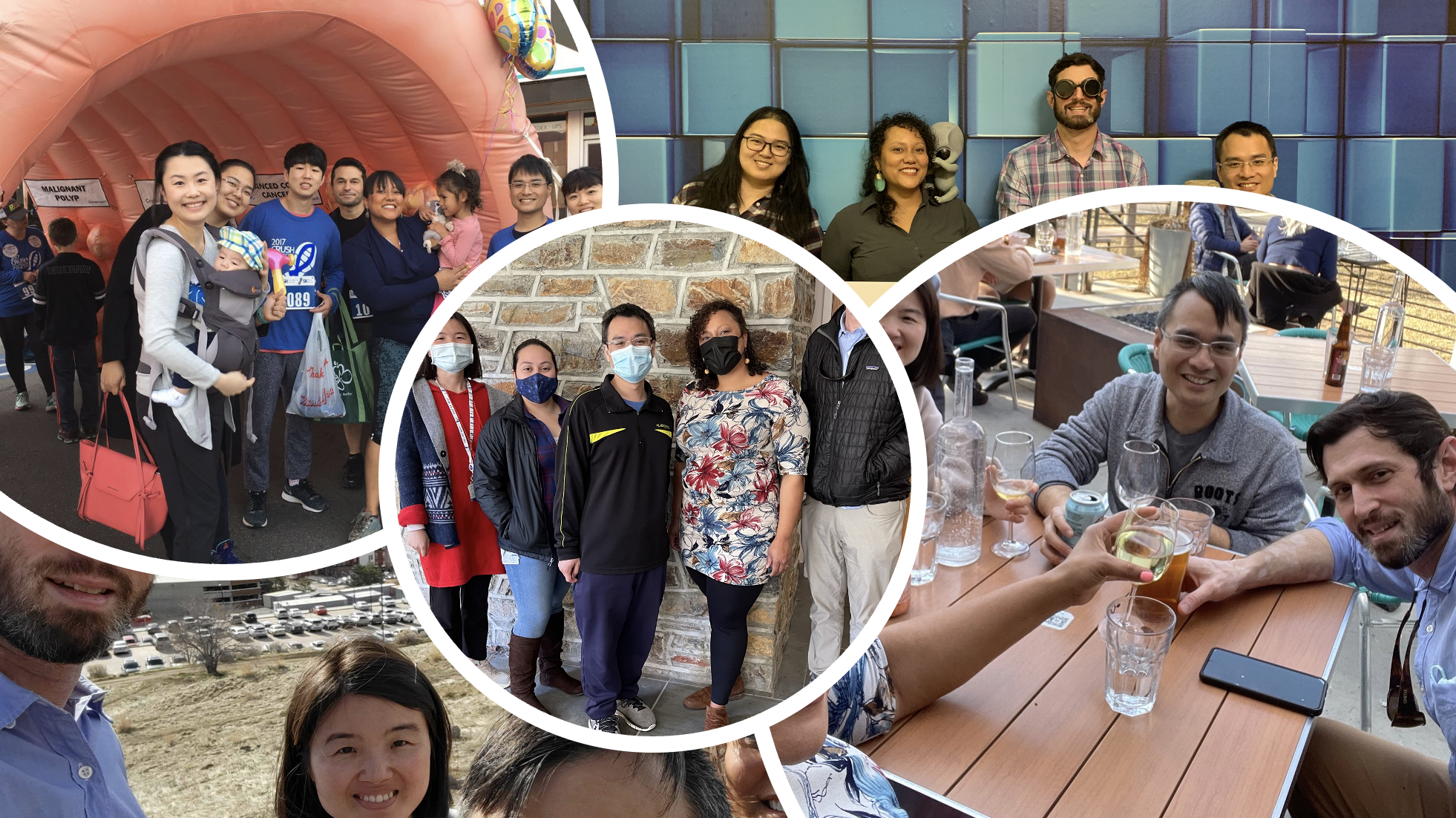The Hammer Lab.
Julio barrera, research associate
The scientific questions I enjoy most are those that converge on the brain. My project on the gut-brain axis builds on my background in the study of neurodegenerative disease and the impact of cellular dysfunction on memory. My ultimate hope is that my research in the Hammer lab will lead to new therapies to improve brain health.
Hsin-I Huang, Ph.D., postdoctoral Fellow
My current research focuses on gamma delta T cells, particularly those that secrete the inflammatory cytokine IL-17. In my published work, I described how IL-17-producing gamma delta T cells in the gut receive both positive and negative regulatory signals from gut microbiota. I now want to understand how microbiota regulate gamma delta T cells inside of colon tumors, and how microbiota act together with tumor-derived signals to enhance IL-17 production by gamma delta T cells and promote the growth of colorectal cancer. I really enjoy the process of coming up with the experimental design, refining the scientific questions, and executing experiments to find out whether the hypothesis is correct or not. Altogether, this process of discovery is essential to identifying and understanding how tumor-promoting immune cells interact with colorectal cancer, and ultimately developing novel therapies to treat colorectal cancer.
pauline oloo, graduate student
What I enjoy most about research is that it can be surprising—sometimes the best designed experiment can turn up unexpected results. The fun lies in figuring out the scientific explanation for those results, and to get those answers I like to incorporate different disciplines and ideas so that I have a “holistic” view of both the questions and the answers. I study the gut because I believe that understanding the interplay of microbiota and immune cells in this organ will unlock novel therapeutic interventions for disease.
mark jewell, Ph.d., research associate
Some people with intestinal inflammation also have inflammation in other organs. Collectively called “extra-intestinal manifestations of IBD”, these IBD-linked diseases are mysterious and have no known causal genetic or microbial links to the gut. This lack of connection must seem like an absurdity to patients with the incurable liver disease primary sclerosing cholangitis (PSC), as a vast majority of those patients have IBD. I believe PSC originates from immune dynamics in the intestine, and my research focuses on identifying these mechanistic determinants and new therapeutic avenues.
Dlnia moradi, master’s student
Scientific research keeps my energy up because it always requires action and active thinking. Because of the energy I put into the scientific questions, I feel that research is where I can make my strongest contributions to benefit people and human health. My current project investigates the influence of genetics and the immune system on disease.
Kyla Guilford, Bridge-Up HBCU Student
My name is Kyla Guilford and I am a biology pre-med major with a psychology minor from Raleigh, North Carolina, and my passion for medicine is deeply personal. From being misdiagnosed as a toddler to watching my mother’s pain dismissed after childbirth, I’ve seen how bias in healthcare can silence Black voices. Later, when my own symptoms were ignored in college, I realized the power of advocacy—of refusing to be overlooked. These experiences have shaped my mission: to become a physician who listens, who sees beyond assumptions, and who fights for those too often unheard.
Hammer lab alumni
Visiting scholar
Fernanda P. Benzatti
Year
PhD awarded 2017
Ph.D. student
Junyi J. Zhang
Year
Master’s awarded 2020
Master’s student
Nourhan Youssef
Year
Master’s awarded 2016
Ph.D. student
Jie Liang
Year
PhD awarded 2017
Postdoctoral fellow
Yue Xue
Year
2020-2022
Ph.D. student
Hsin-I Huang
Year
PhD awarded 2022
Postdoctoral fellow
Diana Healey
Year
2021









